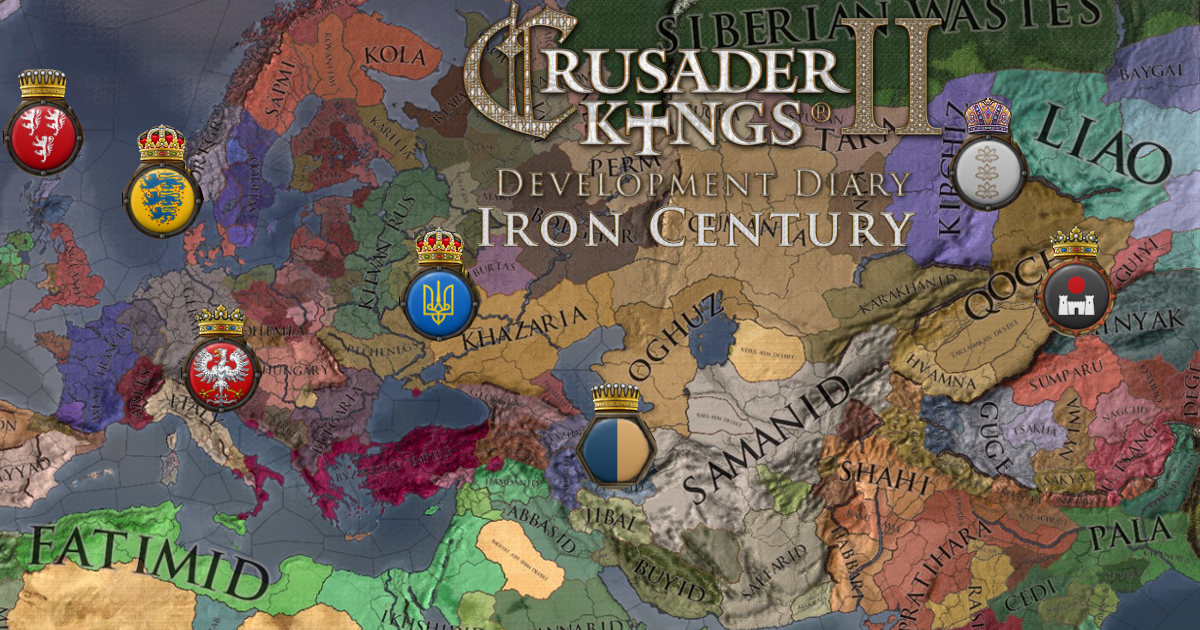
Crusader Kings 2 (Image credit: ☠ ☩ Mr.Nekator ☩ ☠ ). With new eras come new cultures that you can add to the melting pot, unlocking new culture-specific benefits. Hello, i've been playing CK2 since release, and i own all the DLC except the e-books. Now, to the matter at hand: I would really like to see some more melting pot cultures beeing added into the game. Now, i do realize there's technical limitations to how many could be added in practice, but i at the very least think that there should be more cultural diverisity in the game and adding some new.
Province culture changes 55001: Bring in some settlers 55002: The English Melting Pot (after year 1100) 55003: It's spreading 55004: Make my court speak English 55005: Make my vassal speak English 55006 Untitled 55010: A ruler is assimilated by the local culture 55011 Untitled 55100 Untitled. Crusader Kings II. All Discussions. Same goes for all the other melting pot cultures. I'm playing with Slower Conversion. Showing 1-5 of 5 comments. Also, HIP Changes several culture names- so when you say German, Do you the Diustch? Or will any central or western german culture do? DragonMaster Jul 27, 2019 @ 11:02pm Just checking That i've gotten this right, German Leading Prussians would get that melting pot- or Could a Prussian leader with german cultures also get the melting pot culture?
In sociology, the 'melting pot' is a concept referring to a heterogeneous society becoming more homogeneous with the different elements “melting together” into a harmonious whole with a common culture.
The melting pot concept is most commonly used to describe the assimilation of immigrants to the United States, though it can be used in any context where a new culture comes to co-exist with another. In recent times, refugees from the Middle East have created melting pots throughout Europe and the Americas.
This term is often challenged, however, by those who assert that cultural differences within a society are valuable and should be preserved. An alternative metaphor, therefore, is salad bowl or mosaic, describing how different cultures mix, but still remain distinct.
The Great American Melting Pot
The United States of America was founded upon the concept of opportunity for every immigrant, and to this day this right to immigrate to the U.S. is defended in its highest courts. The term first originated in the U.S. around 1788 to describe the cultures of many European, Asian, and African nationalities merging together in the newfound culture of the new United States.
This idea of melting cultures together lasted through much of the 19th and 20th centuries, culminating in the 1908 play 'The Melting Pot,' which further perpetuated the American ideal of a homogenous society of many cultures.
However, as the world was overtaken in global warfare in the 1910s, 20s, and again in the 30s and 40s, Americans began to establish an anti-globalist approach to American values, and a large contingent of citizens started calling for banning immigrants from certain countries based on their cultures and religions.
The Great American Mosaic
Due perhaps to an overwhelming sense of patriotism among older-generation Americans, the idea of preserving the 'American culture from foreign influence' has taken center stage in recent elections in the United States.
Ck2 Melting Pot Cultures Stoneware

Ck2 English Culture
For this reason, progressives and civil rights activists arguing on behalf of allowing immigration of refugees and impoverished peoples have renamed the concept to be more of a mosaic, where the elements of different cultures sharing one new nation cohesively form a mural of all beliefs working side by side.
Usa Is A Melting Pot
As idealistic as this seems, it works in many instances. Sweden, for instance, has seen no change in crime despite allowing in a large swathe of Syrian refugees in 2016 and 2017. Instead, the refugees, respecting the culture of the land they've been welcomed to, work side by side with their allies to build better communities.